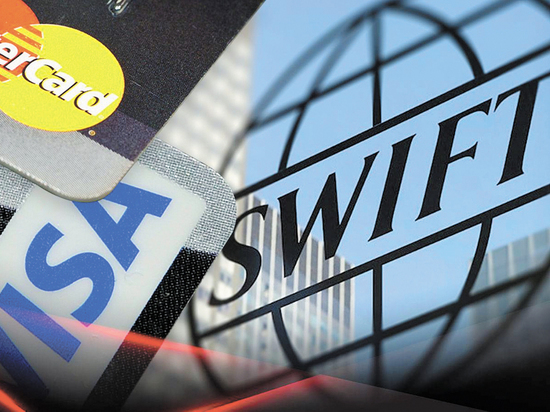The World Bank compared the fall of the economies of Russia and Ukraine
[ad_1]

Analysts admitted: anti-Russian sanctions worked poorly
The Ukrainian economy will contract eight times more than the Russian one, according to the World Bank’s forecast. According to its analysts, Kyiv’s economy will shrink by 35% in 2022, compared to Russia’s 4.5% drop in GDP.
The World Bank estimates that amid the conflict this year, Ukraine’s economy will shrink by eight times that of Russia’s, writes The Guardian.
In its latest Europe and Central Asia report, the Washington-based World Bank said the Ukrainian economy will shrink by 35% in 2022, compared to a 4.5% fall in Russian GDP.
Earlier estimates suggested that Russia would face a bigger economic hit this year, but the World Bank said the impact of the sanctions has so far been less severe than forecast.
Although the Ukrainian economy has shown signs of growth since April, the World Bank said the country’s recovery will be slow and the cost of repairing the damage caused by the conflict will be huge. The minimum cost is estimated at $349 billion, more than one and a half times Ukraine’s pre-conflict gross domestic product.
According to The Guardian, Ukraine was already the poorest country in Europe even before the conflict broke out in February this year, but more than seven months of conflict has displaced a third of its 44 million people and 60% live below the national poverty line.
“Ukraine still needs huge financial support,” says Anna Bjerde, World Bank Vice President for Europe and Central Asia.
Inflation accelerated rapidly in Ukraine, hitting an annual rate of just under 24% in April, with high food price inflation hurting families, especially the poor.
The effects of the conflict were expected to linger as the Ukrainian economy suffered from destruction of productive capacity, damage to arable land, and reduced labor supply. The risk of refugees not returning has become more and more likely as the crisis enters its eighth month and those fleeing conflict increasingly settle in host countries.
On the contrary, the World Bank said that soaring energy prices helped soften the blow to Russia from sanctions. According to the report, the anti-Russian sanctions imposed on Moscow since the outbreak of the conflict in Ukraine “have significant negative economic consequences, although less severe in the short term than expected.”
“The initial shock was mitigated by the authorities’ strong fiscal response, capital controls, monetary tightening, swift action to mitigate financial sector risks, and strong foreign exchange inflows driven by rising global commodity prices,” the report said. World Bank.
At the same time, the World Bank said that the freezing of half of Russia’s international reserves and the decline in domestic oil and gas revenues made the country more vulnerable to falling world energy prices. “Moreover, the sanctions have led to a sharp reduction in total imports, limited access to new technologies and equipment, as well as to external financing, and thus weakened medium and long-term growth prospects,” the report says.
[ad_2]
Source link






